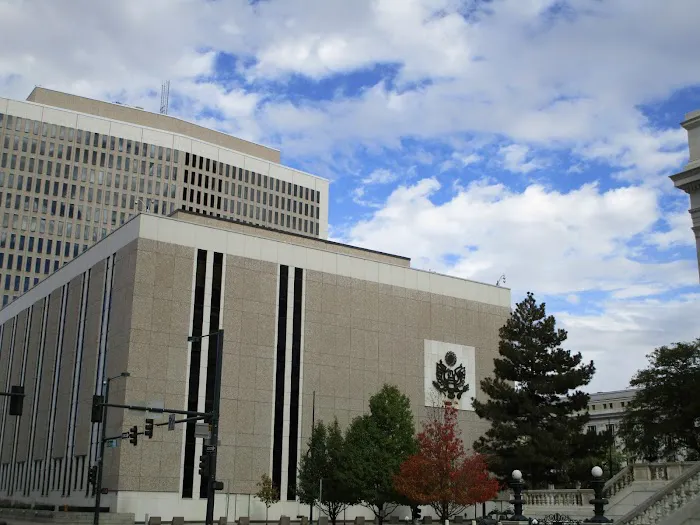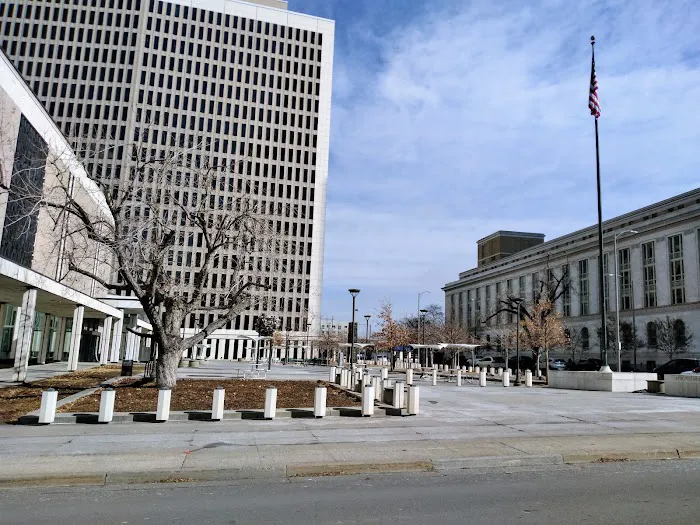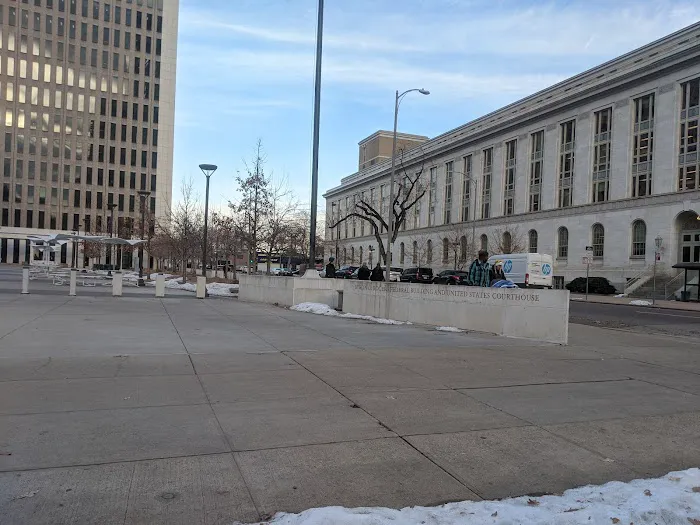US Exec Office Immigration Review
Open Hours:
Monday, 1:00 PM - 4:00 PM
Tuesday, 1:00 PM - 4:00 PM
Wednesday, 1:00 PM - 4:00 PM
Thursday, 1:00 PM - 4:00 PM
Friday, 1:00 PM - 4:00 PM
Saturday, Closed
Sunday, Closed



Introduce
For individuals and families in Colorado navigating the complexities of the United States immigration system, understanding the various governmental bodies involved is crucial. One such critical entity is the US Executive Office for Immigration Review (EOIR), often referred to by the public as the Immigration Court. Unlike a private law firm that provides legal representation, the EOIR serves as an administrative court system within the Department of Justice, responsible for interpreting and applying immigration laws by conducting immigration court proceedings and appellate reviews. Its primary function is to resolve immigration cases efficiently and fairly, ensuring due process for all individuals, including those facing removal (deportation) proceedings, seeking asylum, or adjusting their immigration status.
The Denver location of the US Executive Office for Immigration Review plays a vital role for the local Colorado community. It is the venue where immigration judges hear cases, make decisions regarding the admissibility and deportability of non-citizens, and adjudicate applications for various forms of relief from removal. For many Coloradans, especially those without legal status or seeking protection, the Denver Immigration Court represents a critical juncture in their lives, determining their ability to remain in the United States. Understanding its function, location, and the general procedures involved is paramount for anyone whose immigration journey intersects with this federal entity.
This article aims to provide a clear, engaging, and informative overview of the US Executive Office for Immigration Review in Denver, focusing on its role for local users in Colorado. We will detail its location and accessibility, outline the types of proceedings conducted there, and discuss other relevant information to help Coloradans better understand this essential component of the U.S. immigration system.
The US Executive Office for Immigration Review (EOIR) in Denver is located at 1961 Stout St UNIT 3101, Denver, CO 80294, USA. This address places the Immigration Court directly in the heart of downtown Denver, a central and generally accessible location for individuals across the metropolitan area and beyond. Being situated on Stout Street, the office is within the city's core business and government district, making it relatively straightforward to find for those familiar with downtown Denver.
The firm's downtown presence offers excellent accessibility through Denver's extensive public transportation system. Numerous RTD bus routes and light rail stations are typically within comfortable walking distance of the court, providing a practical and often preferred option for individuals traveling to hearings. This is particularly beneficial for those who may not have access to private transportation or wish to avoid the complexities of downtown parking. For individuals commuting by car, the downtown location is well-connected to major interstate highways, including I-25 and I-70, which are easily accessible from various parts of Colorado, such as Aurora, Lakewood, Boulder, and Fort Collins. However, it is important to note that parking in downtown Denver can be limited and expensive, often involving commercial parking garages. Given that this is a federal court building, security protocols will be in place, and visitors should allow extra time for screening before entering the building. Its central location, despite potential parking challenges, ensures that the Immigration Court remains a reachable entity for all Coloradans who must appear for proceedings.
The US Executive Office for Immigration Review (EOIR) is an administrative court system. It does not offer legal services or representation to individuals. Instead, its primary function is to hear and decide cases under the Immigration and Nationality Act. The services it "offers" are in the form of judicial and administrative proceedings. Key functions and services provided by the Immigration Court include:
- Conducting Removal Proceedings: Immigration judges hear cases for non-citizens who have been charged by the Department of Homeland Security (DHS) with being removable (deportable) from the United States.
- Adjudicating Applications for Relief from Removal: During removal proceedings, individuals can apply for various forms of relief, which immigration judges then evaluate. These may include, but are not limited to:
- Asylum and Withholding of Removal: For individuals fearing persecution in their home country.
- Cancellation of Removal: For certain long-term residents with qualifying U.S. citizen or lawful permanent resident family members.
- Adjustment of Status: Allowing eligible individuals to obtain lawful permanent resident status (Green Card) without leaving the U.S.
- Waivers of Inadmissibility or Deportability: Petitions to forgive certain grounds of inadmissibility or deportability.
- Issuing Decisions: Immigration judges issue written or oral decisions on cases, which can then be appealed to the Board of Immigration Appeals (BIA).
- Scheduling Hearings: The court is responsible for scheduling master calendar hearings (initial appearances) and individual (merits) hearings where evidence is presented.
- Processing Case Records: Maintaining records of all immigration proceedings and related documents.
- Providing Information on Court Procedures: While not providing legal advice, the court does offer information on court rules, procedures, and access to resources for finding legal representation (e.g., lists of pro bono legal service providers).
The US Executive Office for Immigration Review (EOIR) in Denver operates as a critical federal entity with specific functions. While it is not a "lawyer" in the sense of providing representation, it has several inherent features and operational aspects that are important for the public to understand. The provided reviews, while critical of systemic issues, also shed light on certain operational facets:
- Federal Authority and Jurisdiction: The EOIR is a branch of the U.S. Department of Justice, wielding federal authority to interpret and apply immigration law, making its decisions legally binding unless overturned on appeal.
- Immigration Judges: The court is staffed by immigration judges who are administrative judges with the authority to rule on cases involving non-citizens, including asylum claims and deportation proceedings.
- Procedural Complexity: The system can be complex and challenging to navigate, as highlighted by the experience of a client who traveled unnecessarily due to delayed notification of a rescheduled hearing. This underscores the need for diligent follow-up and possibly legal counsel.
- Communication Challenges: The review about the delayed notification of a hearing cancellation points to potential inefficiencies or delays in the court's communication system, which can have significant consequences for individuals.
- Varying Staff Interactions: While one reviewer expressed disappointment about negative comments from "workers from window 4 and 2," they also praised "Angela (5 * window 2)." This indicates that experiences with court staff can vary, highlighting the importance of professionalism within a federal agency.
- Due Process Forum: Despite its challenges, the court serves as the primary forum where non-citizens can present their case and apply for relief from removal, ensuring a level of due process within the immigration system.
- High Volume of Cases: Immigration courts, including Denver's, often handle a very high volume of cases, which can contribute to long wait times, scheduling complexities, and a backlog of hearings.
As a federal administrative court, the US Executive Office for Immigration Review (EOIR) does not offer "promotions" or "special offers" in the commercial sense that a private business or law firm might. Its services are the judicial processes it performs as part of its governmental mandate.
However, the court does provide certain forms of assistance or resources that could be considered "benefits" in a non-promotional context for individuals appearing before it:
- Access to Legal Counsel Information: The court typically maintains lists of pro bono (free) or low-cost legal service providers who may be able to offer representation to individuals. This is a crucial resource for many who cannot afford private attorneys.
- Language Access: While not explicitly stated in the reviews, federal courts are generally required to provide language interpretation services for individuals who do not speak English, ensuring fair proceedings.
- Public Information Resources: The EOIR website (justice.gov/eoir) offers a wealth of public information regarding court procedures, rules, and case status checks (e.g., through the EOIR Automated Case Information System).
It is important for individuals with cases before the EOIR to understand that these are administrative functions and resources, not promotional offerings. The primary goal is to ensure a fair and efficient judicial process.
For individuals in Colorado who have proceedings before the US Executive Office for Immigration Review (EOIR) in Denver, here is the essential contact information:
- Address: 1961 Stout St UNIT 3101, Denver, CO 80294, USA
- Phone: (303) 844-5815
- Mobile Phone: +1 303-844-5815 (Please note this is likely the same main contact number, mobile numbers for federal offices are usually not distinct from landlines for public contact.)
Individuals with scheduled hearings should use the main phone number to inquire about their case status, confirm hearing dates, or seek information on court procedures. It is advisable to always verify hearing schedules and locations directly with the court, as unforeseen changes can occur, as highlighted in the provided customer review. Utilizing official communication channels is critical when dealing with federal court matters.
For locals in the Colorado region, the US Executive Office for Immigration Review (EOIR) in Denver is a critically important, albeit complex, entity within the federal immigration system. While it is not a law firm that offers legal representation, it is the primary venue where many immigration cases are adjudicated, impacting the lives and futures of countless individuals and families. Its central downtown Denver location, with good access to public transportation, makes it geographically accessible for Coloradans who must appear for hearings. Understanding that this is an administrative court system, rather than a service provider, is key. While the system can present challenges, such as communication delays highlighted in a review, it remains the formal process for seeking relief from removal, adjusting status, or applying for asylum. For any Coloradan involved in immigration proceedings, knowing the location, function, and procedures of the Denver Immigration Court is fundamental. It underscores the importance of being proactive in seeking case information and, whenever possible, securing experienced legal counsel to navigate the complexities of this crucial government body effectively.
Location & Map
1961 Stout St UNIT 3101, Denver, CO 80294, USA
Customer Reviews
(66 reviews)
We ( Venezuelan political refugee) and myself, American Novio, traveled all the way from Kalispell, MT for the master hearing, just to find out that a letter was Sent out the day of our scheduled hearing notifying us that our hearing was cancelled and moved to Portland. We had submitted a request to change locations 2 weeks before the scheduled hearing in Denver, but did not receive a response, so we traveled to Denver in fear of missing the court hearing. We wasted $2000 dollars of very hard earned money to travel to Denver from Kalispell MT. Why did the courts take so long to approve the request we sent 2 weeks before needing to travel. We didn't even receive the letter that told us to change locations until 3 days after the scheduled court date in Denver, when we were already back in Montana. This system is broken and the US government is not doing their jobs.
Jan 11th 7:30am workers from window 4 and 2 where saying some Peruvian ppl smell and criticizing the clients. BAD BAD! Angela was 5 * window 2.
How do you report someone doing fraud ?
Appreciate the entrance security’s help, very friendly and informative
I enjoyed my court observation experience
More Laywer Nearby

Drumm Law, LLC
999 18th St UNIT 3000, Denver, CO 80202, USA

ALBUJA LAW LLC
1801 California St, Denver, CO 80202, USA

Cornell Johnson
1800 Glenarm Pl Suite 100, Denver, CO 80202, USA

Law Offices of James Hassan
600 17th St suite 2800-s, Denver, CO 80202, USA

Lau & Choi
1930 Sherman St, Denver, CO 80203, USA

Muhaisen and Muhaisen, LLC Attorneys at Law
1225 17th St UNIT 2520, Denver, CO 80202, USA

The Juba Law Office, PLLC
1600 N Broadway #1040, Denver, CO 80202, USA

Pro Forma Immigration Attorneys
1580 Logan St Floor 6, Denver, CO 80203, USA

Cheney Galluzzi & Howard LLC
2701 Lawrence St Suite 201, Denver, CO 80205, USA

Palmer Polaski PC
1761 Emerson St, Denver, CO 80218, USA

The Wilhite Law Firm
1600 N Ogden St, Denver, CO 80218, USA

Bull & Davies, P.C.
1634 N Downing St, Denver, CO 80218, USA
